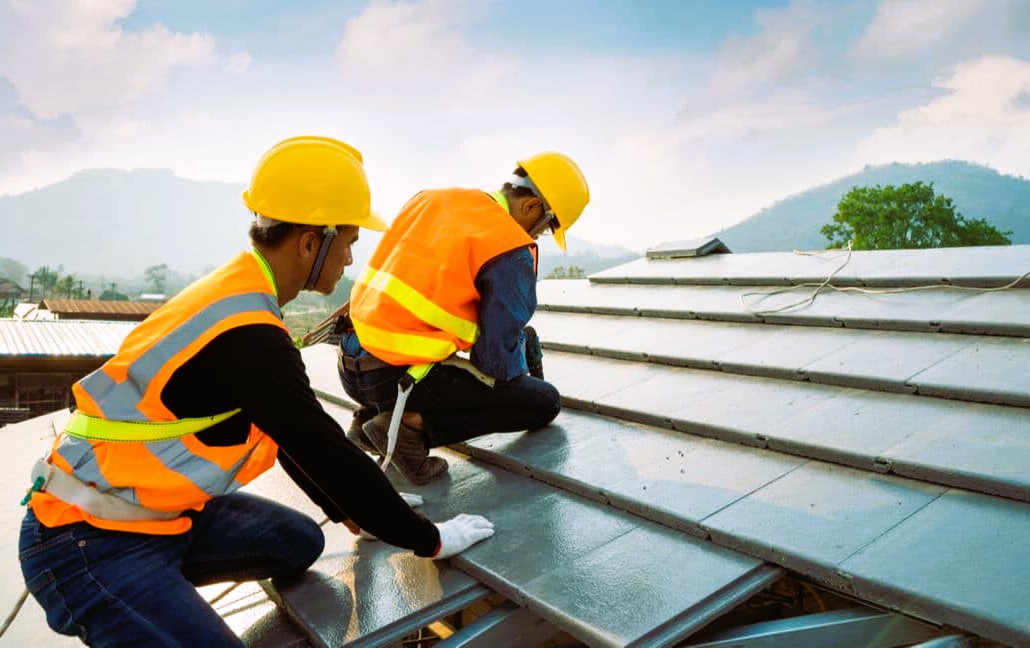Before embarking on the journey of hiring a Toronto roofing entity, the discerning homeowner must unravel the mysteries behind these quintessential questions. This prudent approach promises to be a salient savior of both time and financial resources, sparing one from potential headaches.
- Does the contractual accord boast a builder’s lien release?
Upon undertaking a roofing venture, the roofer invariably incurs expenses with material suppliers as materials are requisitioned for the project. This intricate dance enables the roofing company to amass all necessary materials for seamless job completion. The homeowner traditionally defers payment until post-job completion, yet the supplier anticipates compensation upon the project’s conclusion.
However, should remuneration elude the supplier, legal recourse is available under state statutes, allowing the filing of builders’ or mechanics’ liens against the homeowner. This legal stratagem endows suppliers with the authority to hold the homeowner legally accountable for materials procured for the project. A concept harkening back to the days of the Roman Empire, the builders’ lien remains a statutory encumbrance on real property.
To circumvent the potential peril of a builders’ lien, it becomes imperative for homeowners to ensure the inclusion of a builders’ lien release in the contractual framework, shielding them from financial liability and ensuring supplier remuneration. Easy roof restoration with your own hands, more details in our article.
- Is the roofing entity adequately insured?

In the event of a laborer succumbing to injury during the course of duty, insurance emerges as a pivotal safeguard. An injured worker possesses the prerogative to litigate against the homeowner for medical expenses and lost wages. It is incumbent upon the homeowner to ascertain that the roofing contractor is equipped with comprehensive insurance coverage, indemnifying against accidents and unforeseen mishaps. Roofer – Wikipedia.
- Who assumes the mantle of securing building permits?
Typically falling within the purview of the roofing company, the responsibility to procure and certify requisite building permits is paramount. A failure to adhere to this protocol may culminate in punitive fines for the homeowner, with the added jeopardy of work cessation until proper permits are conspicuously displayed. The contractual agreement must explicitly delineate the onus of securing building permits, averting potential legal entanglements.
- Do both materials and labor enjoy the umbrella of guarantees?
While the manufacturer often extends warranty coverage to roofing materials for durations spanning 15, 20, or 30 years, it is judicious for the homeowner to demand a concomitant warranty on labor. This negotiation between the roofing contractor and homeowner is a prudent safeguard in the event of material malfeasance. Repairing a fractured joist lies beyond the purview of most homeowners’ skill sets, underscoring the significance of labor warranties.
- What is the projected timeline for project completion?
Within the contours of the contractual agreement, explicit delineation of a commencement date and an estimated denouement date is imperative. It behooves the homeowner to recognize that the contractor may be concurrently engaged in multiple projects. Unforeseen delays in material availability may prompt the reassignment of the crew to fulfill prior commitments. An elucidated completion date acts as a potent incentive for timely project culmination.
In soliciting responses to these inquiries from a prospective roofing contractor, the homeowner is poised to secure a professional undertaking characterized by excellence, timeliness, and competitive pricing.


